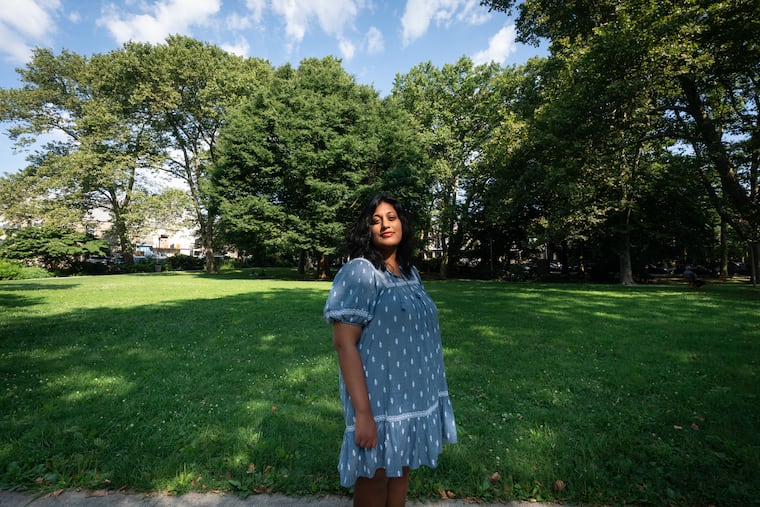I’m immunocompromised and qualify for a new drug to prevent COVID. So why can’t I get it?
I, and many other disabled people, have been unable to access such drugs, even in Philadelphia.

In April, members of my online support group for inflammatory bowel disease posted with frenzied confusion: “Have you heard of this drug, Evusheld? Are you going to get it?”
By this point in the pandemic, masks had come off across the country, even as immunocompromised people like myself worried about catching COVID-19, due to our higher risk of severe illness. The Biden administration responded that new strategies, like offering Evusheld, an injectable drug designed to prevent COVID, would protect people like me. Yet months later I, and many other disabled people, haven’t been able to access it.
Problems with Evusheld distribution were reported by early March, with estimates that roughly 80% of doses were languishing on shelves. Many of the doses that had been sent to providers were unused.
Part of the problem was it was unclear who should even seek out Evusheld. Some members of our online group received messages from their doctors that they were eligible. Others heard nothing. Finally, in April, we uncovered the FDA’s Fact Sheet for Healthcare Providers: Emergency Use Authorization for Evusheld™, stating that people on high-dose corticosteroids, tumor-necrosis (TNF) blockers, and other immunosuppressive biologic agents — some of the very medications that treat IBD — are eligible for Evusheld.
“So, we should be able to get it,” I posted to the group.
“Who knows?” another group member replied.
I receive a TNF blocker every eight weeks, so I pursued Evusheld. I felt that the more I could protect myself from COVID, the more I could participate in the normalcy the abled world kept heralding. In May, I asked my Penn Medicine gastroenterologist about getting the drug. The nurse practitioner said: “We don’t really do anything with that.”
» READ MORE: BA.5 is the most contagious form of COVID yet. What happens next is up to us.
I contacted my primary care doctor, who told me she could not give me a referral for Evusheld, based on the following messaging provided to doctors from Penn Medicine: “[Evusheld] will be allocated to the highest risk patients via an equitable allocation mechanism. Penn Medicine patients do not need to be referred. Patients or their providers will be contacted with instruction if they are selected. An external referral mechanism will be available in the future.”
The messaging confused and frustrated me.
It turns out Evusheld rationing is happening across the country, as many states have not ordered stock, despite the unused doses. Some medical providers, like Dr. Daniel Kaul at the University of Michigan, believe in ranking patients who need the drug and then setting up lotteries to help equity. This way the most “educated” patients, often most comfortable with advocating for themselves, are not the ones who receive the drug just because they ask.
This logic might be sound if the drug is in low stock in Philadelphia, but it is unclear how “highest risk” has been defined, and why or why not I would be selected as a recipient, especially considering the FDA guidelines for Evusheld include someone in my situation. It is also unclear when an “external referral mechanism” will be available and what that will look like.
Even if patients have the resources to continue advocating for themselves, the results are often disappointing. In June, I discovered a website that helps link people to available treatments for COVID, and was buoyed to see that Evusheld was in stock at the CVS at Locust and 44th. But even with a prescription from my primary doctor, I never got it. Despite what the locator said, the CVS pharmacist told me the medicine was out of stock, though they would try to order it. I waited for weeks until my prescription was canceled in the system.
A week or so later, Ashish K. Jha, the Biden administration’s White House coronavirus response coordinator, tweeted, “If you’re immunocompromised, there’s never been a better time to get Evusheld, which is also free and widely available.”
On June 29, the FDA authorized revisions to Evusheld dosing. It is now recommended that patients who need ongoing protection repeat dosing every six months. I would happily follow the guidance, but I have struggled to obtain even one of these “widely available” doses.
How is it that this drug, touted as extra protection for the disabled, has become one more hurdle for those of us already trying to juggle too many appointments, too many prescriptions, too many hours on the phone advocating for ourselves? It is enough to make us feel, once again, abandoned by those who were meant to care about us.
Eshani Surya is a writer in Philadelphia, working as a patient advocate at Health Union. @__eshani